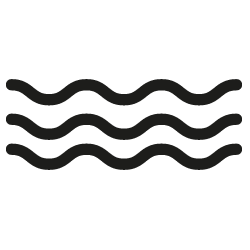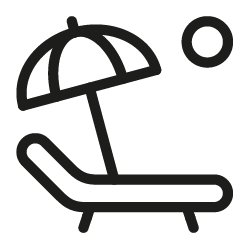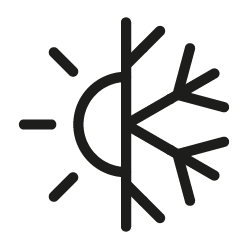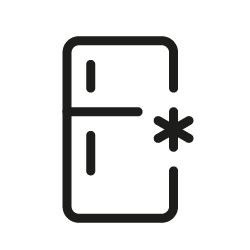Poseidon
Panoramic Superior room with sea view and balcony

WELCOME DRINK

Breakfast In Room

FREE WI-FI

Sea view

double chromotherapy shower

Jacuzzi in the room

BALCONY equipped with shower, table, chairs and sunshade

Common panoramic garden with exclusive access, equipped with tables, chairs and deckchairs with solarium and breakfast area

Safety box

Air conditioning

Hair dryer

Courtesy kit

Kit For The Solarium (Towel, bathrobe and slippers)

Ultra HD flat screen TV

FREE MINIBAR

Telephone connection with the Reception

Laundry service
In Greek mythology, Poseidon, god of the sea, tidal waves and earthquakes, was born of Cronus and Rhea and was identified by the Romans with Neptune. According to the legend narrated by Hesiod, Poseidon was swallowed by his father Cronus together with his brothers and sisters, because Cronus feared that they would take his throne from him. Rea managed to save Poseidon, hiding him inside a herd of horses or, in other versions of the myth, entrusting his son to the inhabitants of Rhodes.
Poseidon helped defeat the Titans and Cronus according to Hesiod’s narration of Titanomachy; with his powerful weapon, a trident forged by the cyclops, he defeated the Titans and then locked them up in a prison he built himself. When the kingdom was drawn, Zeus took the sky, Poseidon the sea and all the waters, and Hades the underworld.
Homer narrates that Poseidon, with other deities, rebelled against Zeus, imprisoning him but these, once free, punished the rebels by ordering Poseidon to serve Laomedon, king of Troy. In the Trojan War, Poseidon sides with the Greeks and hates Ulysses, protagonist of the Odyssey, as he had blinded his son, the Cyclops Polyphemus. The latter asks his father, once Ulysses and his companions have fled, to take revenge for him and not to let him go home; for this Poseidon does not participate in the council of the gods, in which they decide to bring home Ulysses.
The name of Poseidon is also linked to the disappearance of the legendary island of Atlantis mentioned by Plato in the 4th century BC. It was located beyond the Pillars of Hercules and its people prospered thanks to its natural riches. The island took its name from Atlas, one of Poseidon’s sons, and after him the Ocean where the island was located, will be called. When its inhabitants became greedy for power, they deserved the punishment of Poseidon and so, due to large earthquakes and floods, in the time of one day and one night, the island Atlantis disappeared swallowed up by the sea.
Its power manifests itself essentially in the telluric and marine upheavals; the bull, the horse, the dolphin are sacred to him, animals that personify the generating force of nature, speed, the water and earth elements. Its symbol is the trident, with which it shakes the earth and causes its springs to gush: in Athens , in the Erechtheion, a deep cavity was shown left by his trident when, competing with Athena for dominance over the city, he caused a source or, according to another version, gave birth to a horse. In this dispute between the gods, Athena won who gave the olive tree to humanity and gave the city its name. The temple on the Acropolis was dedicated to her and the one on the sea at Cape Sounion to Poseidon .
At the end of the 7th century BC, the citizens of the Magna Graecia city of Sibari, in present-day Calabria, wanted to possess a stronghold on the Tyrrhenian Sea to trade with the Etruscans and, travelling from one sea to another, they founded the city which took its name from the god, Poseidonia, the current Paestum.
In its heyday, the temple of Athena in 510 and that of Neptune in 460 BC were built right here in Paestum.
